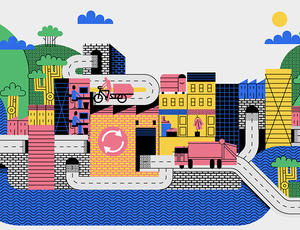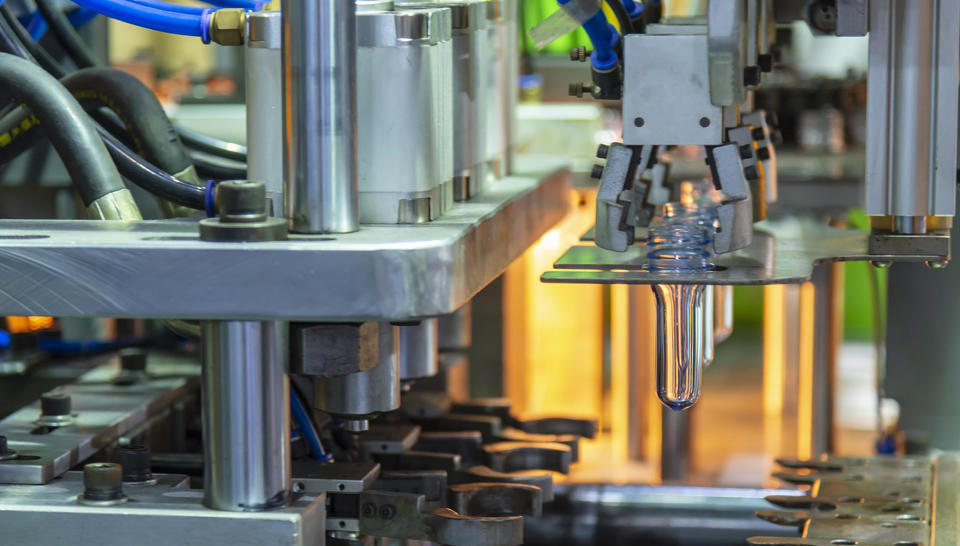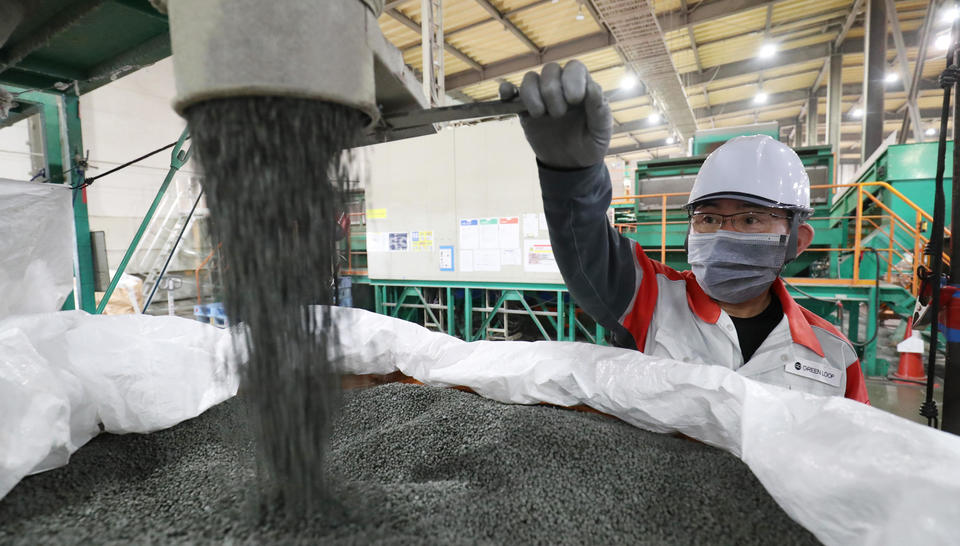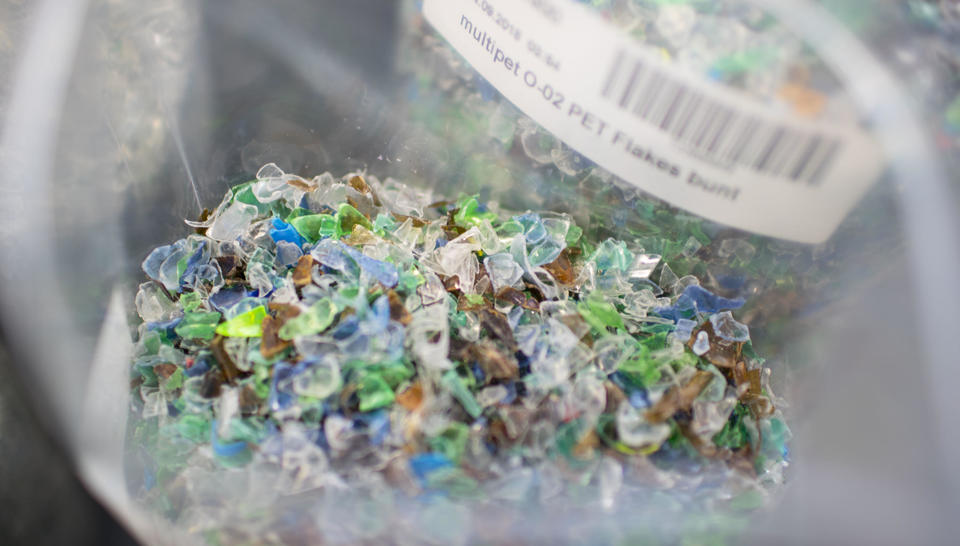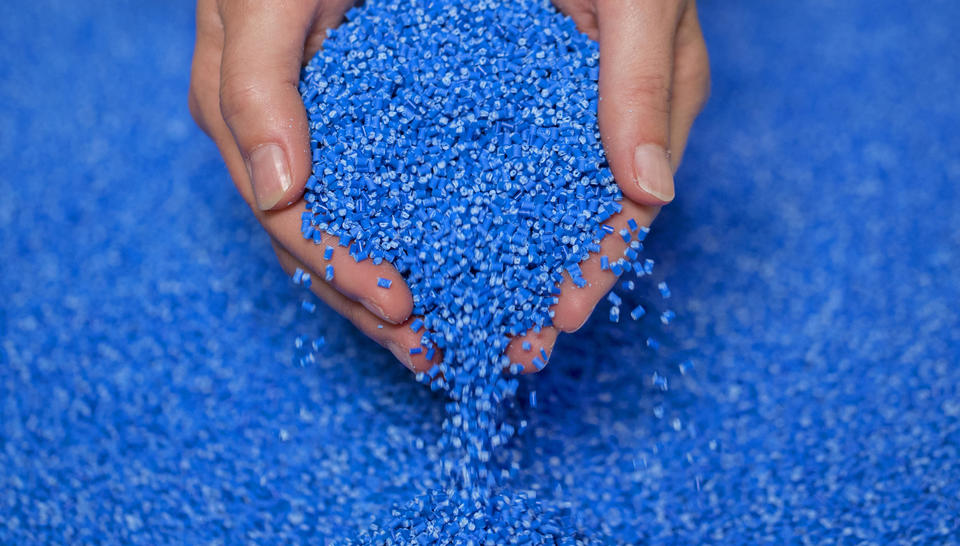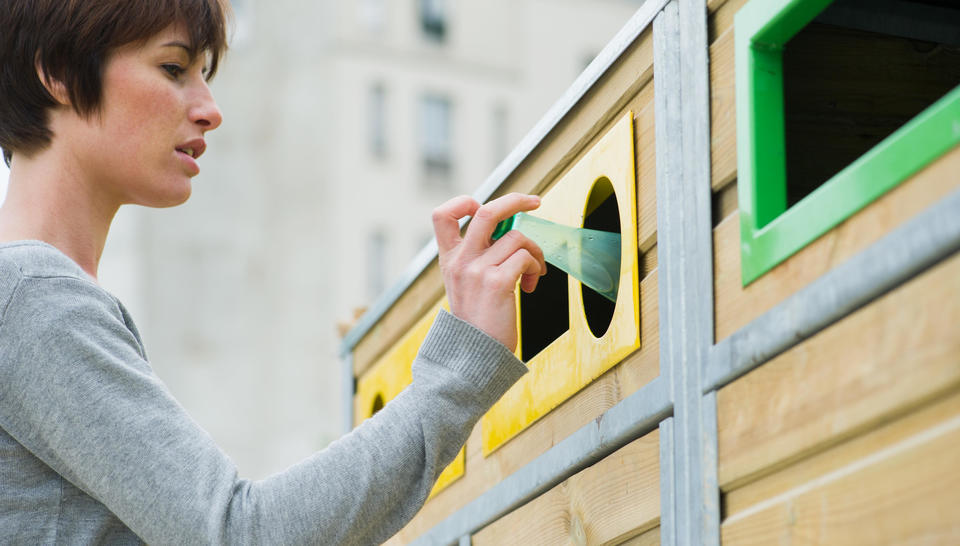The life cycle of plastic poses a twofold problem: not all plastics are recyclable, and not all recyclable plastics are recycled. But there are plenty of options to bring about a circular economy for plastic, namely by improving the quality of the products recycled.
When it comes to recycling plastics, we still have a long way to go. Of 25 million tonnes of plastic waste generated every year in Europe, only 30% are collected for recycling; the rest is incinerated or ends up in rubbish tips and landfills. In France, according to a survey conducted by the magazine 60 millions de consommateurs (60 million consumers) in 2018, that figure stands at only 26%, well below the government’s target of 100% of recycled plastic by 2025.
So, should all hopes of a truly circular economy of plastic be abandoned? Not so fast: European legislation, which provides for the incorporation of 25% of recycled plastic in PET bottles from 2025, and 30% in all plastic bottles from 2030, could well oblige companies to start seriously looking at recycling.
These targets motivated by environmental issues imply having a very high quality recycled matter, in particular for food packaging. The production of a recycled PET bottle emits 70% of CO2 less than the production of a virgin PET bottle and obviously reduces the amount of plastic pollution.
Recycled plastic comparable to virgin plastic
Today, recycling centres rely largely on mechanical processes, which consist in crushing the plastic into flakes, which are then processed and transformed into plastic granules, whose quality is comparable to virgin plastic. This technique enables Veolia to produce recycled PET that makes up between 50% and 70% of the composition of a new bottle. Tomorrow, this figure will reach 100%, says Benoit Perreau, deputy key offer manager Plastic Recycling at Veolia.
There’s a downside though: « With a few exceptions, notably transparent PET, it is not possible to make a product that is approved to be used in food packaging, despite real demand.» For coloured PET or PET containing several barrier layers, and other materials such as polyethylene (present in plastic bags) and polypropylene (used in the automobile industry and food packaging, among other things), it is more complicated. « Obtaining a recycled resin comparable to virgin resin, in terms of its aspect, is more difficult,» he explains.
Hence the importance of facilitating plastic recycling from the outset, « by taking its ability to be recycled on board when designing the bottle, i.e. by using only one type of resin, or by accepting that a bottle produced from recycled materials is not totally transparent,» Benoit Perreau points out. The new packaging of Finish Quantum dishwasher tablets, made by the partnership between Veolia et Reckitt Benckiser (RB), contains 30% of recycled plastic and is grey (without masking pigments or additives).
The future lies in chemical recycling
The industry is now looking into chemical processes to improve recycling. They are still at the research or pilot stage, and include pyrolysis, which consists in heating the plastic to a high temperature to obtain a hydrocarbon product, and material separation, useful for packaging containing several layers of different resins.
« Their aim is to return to monomers, the basic component, using various technologies,» says Benoit Perreau, evoking several initiatives, such as Carbios, which is focusing on biorecycling.
The principle involves using enzymes, biological catalysers, to cut up the PET molecules to de-polymerize the material due to be recycled. The idea is to purify and re-polymerize it to recycle the plastic to infinity. These techniques also apply to coloured plastics (notably PET), which mechanical processes have trouble recycling.
« For the moment, we are not working on an industrial scale, more often than not for economic reasons but also sometimes technical, but the pressure on brands to use recycled plastic is such that chemical recycling will necessarily develop quickly in the months and years to come, » forecasts the deputy key offer manager Plastic Recycling at Veolia. He describes his vision of plastic in tomorrow’s world as a « single-material packaging containing 100% of recycled materials, obtained partly thanks to mechanical recycling and partly thanks to chemical recycling »
A deposit system and low-tech solutions
Obviously, to be recycled, the plastic waste has to find its way to sorting and recycling centres. « We don’t have enough material to recycle, », regrets Benoit Perreau who advocates deposits on plastic bottles, which has been successfully tried and tested in Scandinavian countries. In Norway, for example, the amount of plastic bottles recycled has reached 97% – against only 60% in France, where a possible deposit system has been postponed until 2023. Other initiatives attempt, however, to boost the collection rate. « The idea is to think up ways of collecting waste locally in order to involve citizens and encourage them to take responsibility for collection,» explains Thierry Vandevelde, Veolia Foundation delegate general.
«We have our work cut out to heighten awareness to find low-tech solutions on land – and not at sea – at local levels and on small scales, » he adds, evoking the Plastic Odyssey project, which aims to transform plastic waste into fuel (thanks to pyrolysis) to propel a catamaran in a world tour that should start within a year. The catamaran will stop on the world’s most polluted coastlines where plastic waste is collected, sorted and transformed into useful objects or materials.
« We have our work cut out to heighten awareness to find low-tech solutions on land – and not at sea – at local levels and on small scales »
Veolia is a founding member of the “Alliance to End Plastic Waste” set up in January 2019, and also supports the Tara project, which regularly organises expeditions all over the world to study marine plastic pollution. “It has already carried out a great amount of work in favour of getting decision-makers and major United Nations agencies to look into pollution,” says Thierry Vandevelde, describing the latest assignment, which consisted in identifying and defining the flows of micro-plastic pollution in ten European rivers, in order to remind everyone, once again, of the urgency to recycle plastics.



